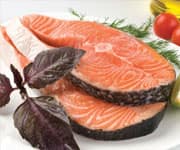|
Tuesday, October 13, 2015
The September 2015 issue of Pharmacological Research published the results of a meta-analysis of six trials which affirm an association between treatment with statin drugs and reduced plasma levels of coenzyme Q10 (CoQ10). Coenzyme Q10 is involved in the production of energy by the mitochondria and is found in nearly every cell of the body. While best known for its cardiovascular benefits, growing evidence has linked CoQ10's protective ability to other areas, including the brain and nervous system.
For their analysis, Maciej Banach of Poland's Medical University of Lodz and colleagues selected six placebo-controlled trials that investigated the impact of atorvastatin, pravastatin, rosuvastatin or simvastatin on serum or plasma CoQ10. Pooled analysis of the data uncovered an average reduction of 0.44 micromoles per liter CoQ10 following treatment with statin therapy. Analysis according to type of drug determined that the reduction in CoQ10 was significant for all four statins examined. Lipophilic statins, which include atorvastatin and simvastatin, and hydrophilic statins, that include rosuvastatin and pravastatin, were not associated with significantly different effects, and effects were significant for trials of more or less than 12 weeks duration.
"To our knowledge, this meta-analysis is the first to assess the effect of statins on plasma CoQ10 concentrations," the authors announce. "The biological consequences of statin-induced CoQ10 depletion may include: increased production of free radicals with consecutive damage of mitochondrial DNA, decrease of the mitochondrial oxidative phosphorylation capacity leading to mitochondrial dysfunction and the dysfunction or injury of skeletal muscle, [and] defective activity of cell division and apoptosis with increased tendency to malignancy."
They add that CoQ10 depletion associated with greater oxidative stress or inflammation has been reported in the elderly, and in patients with arterial hypertension, diabetes mellitus, periodontal disease, depression, chronic fatigue syndrome, Parkinson's disease and breast cancer. It has also been suggested as a factor in fibromyalgia.
"This meta-analysis showed a significant reduction in plasma CoQ10 concentrations following treatment with statins," Dr Banach and coauthors conclude."Further well-designed trials are required to confirm our findings and elucidate their clinical relevance."
|
|








